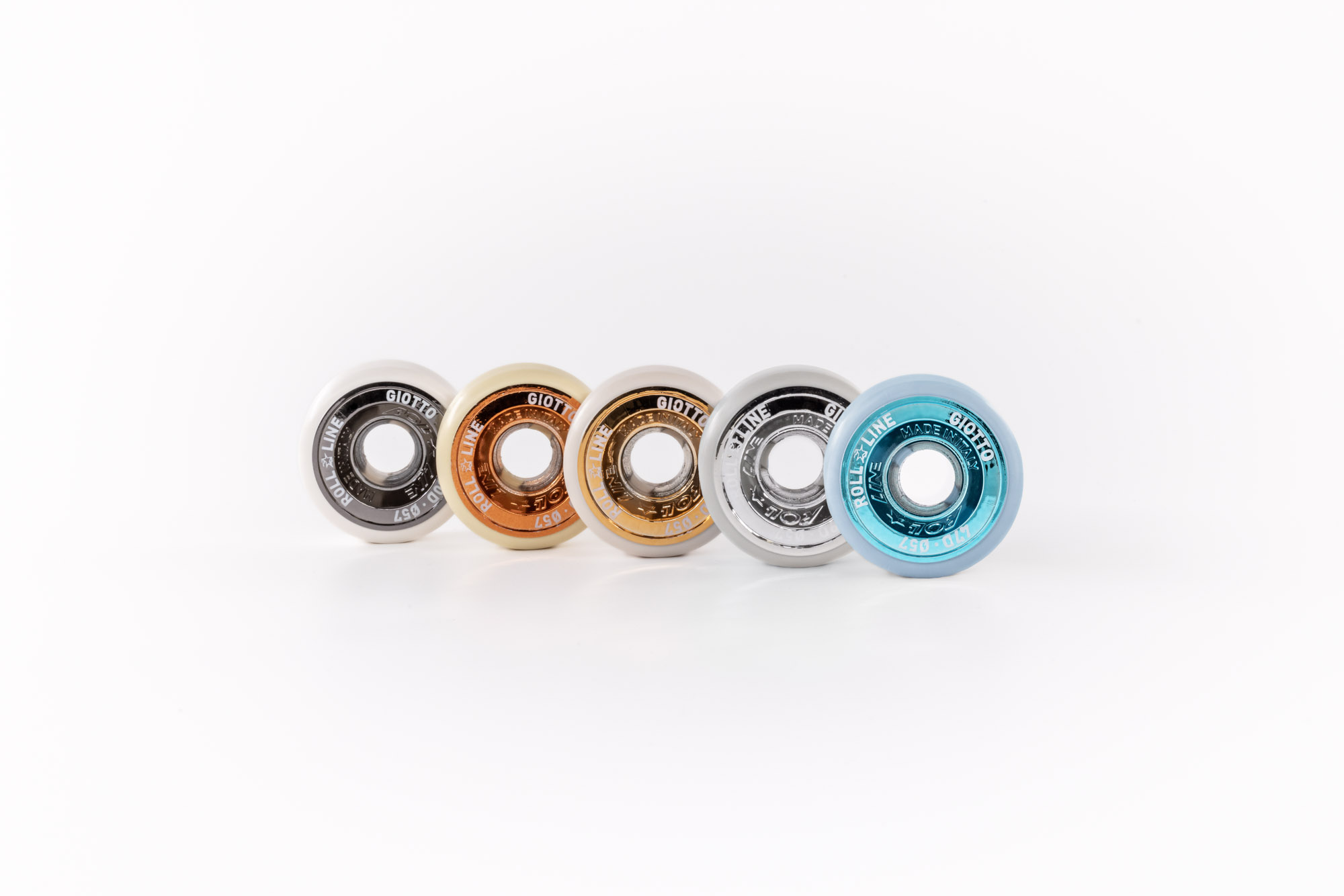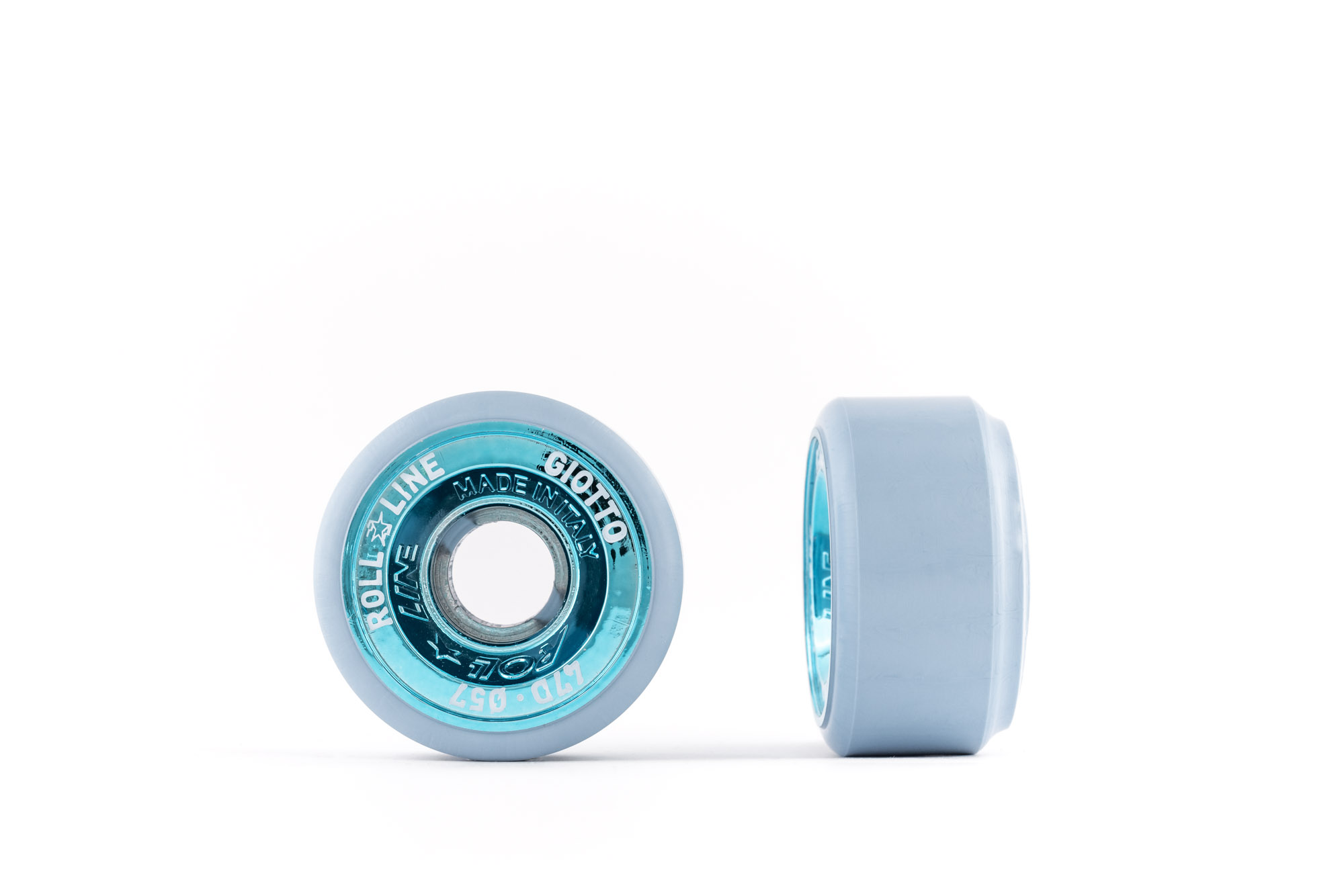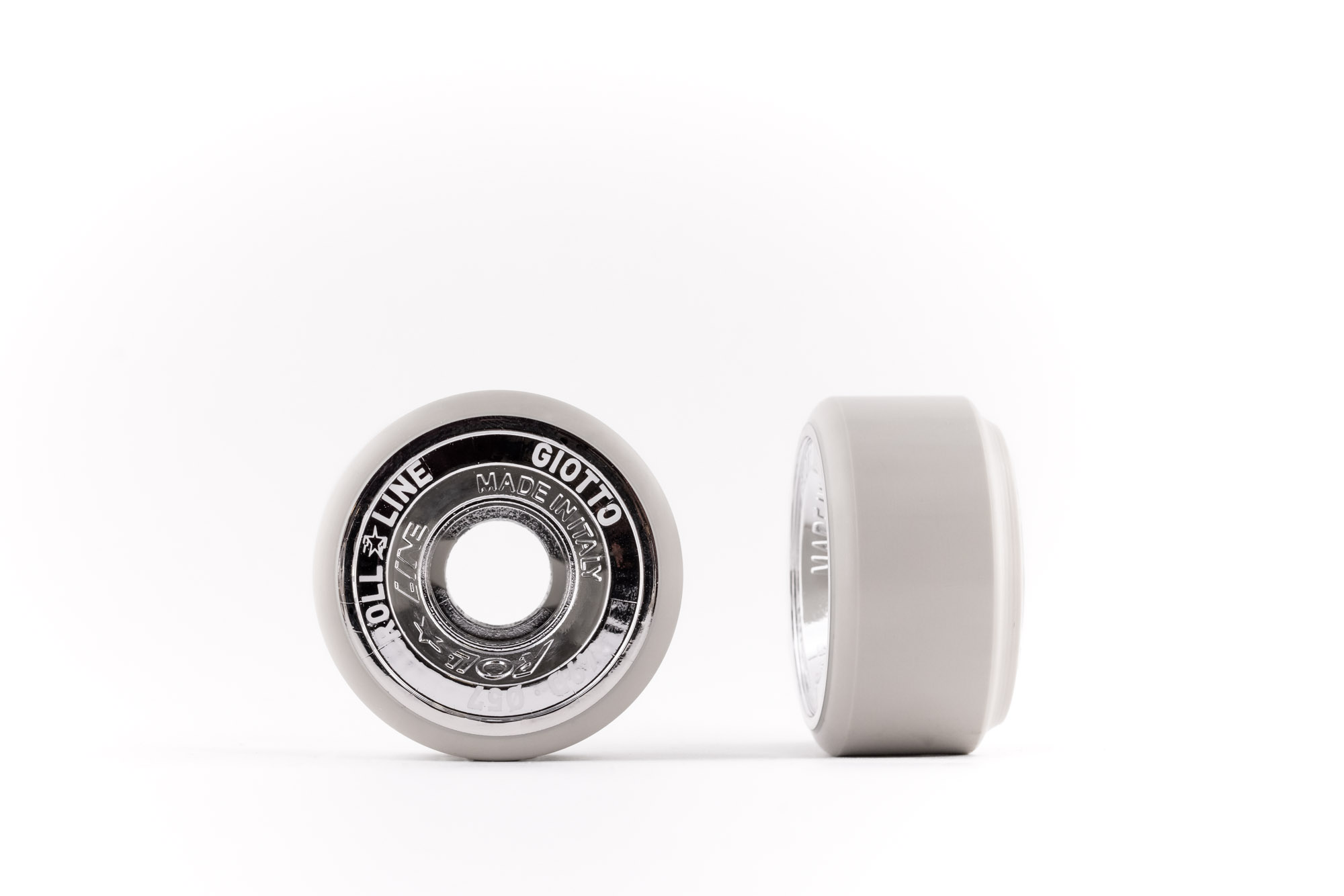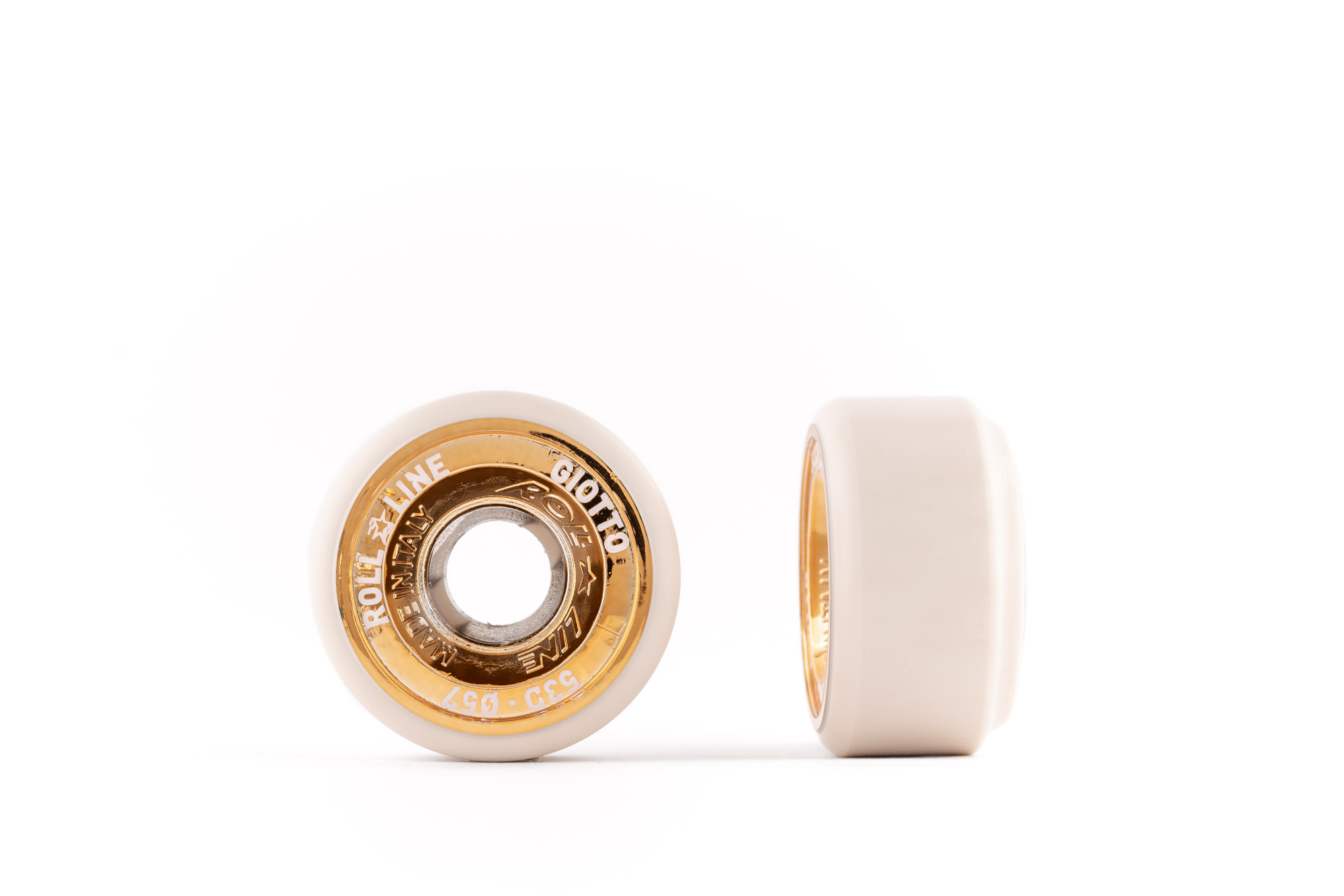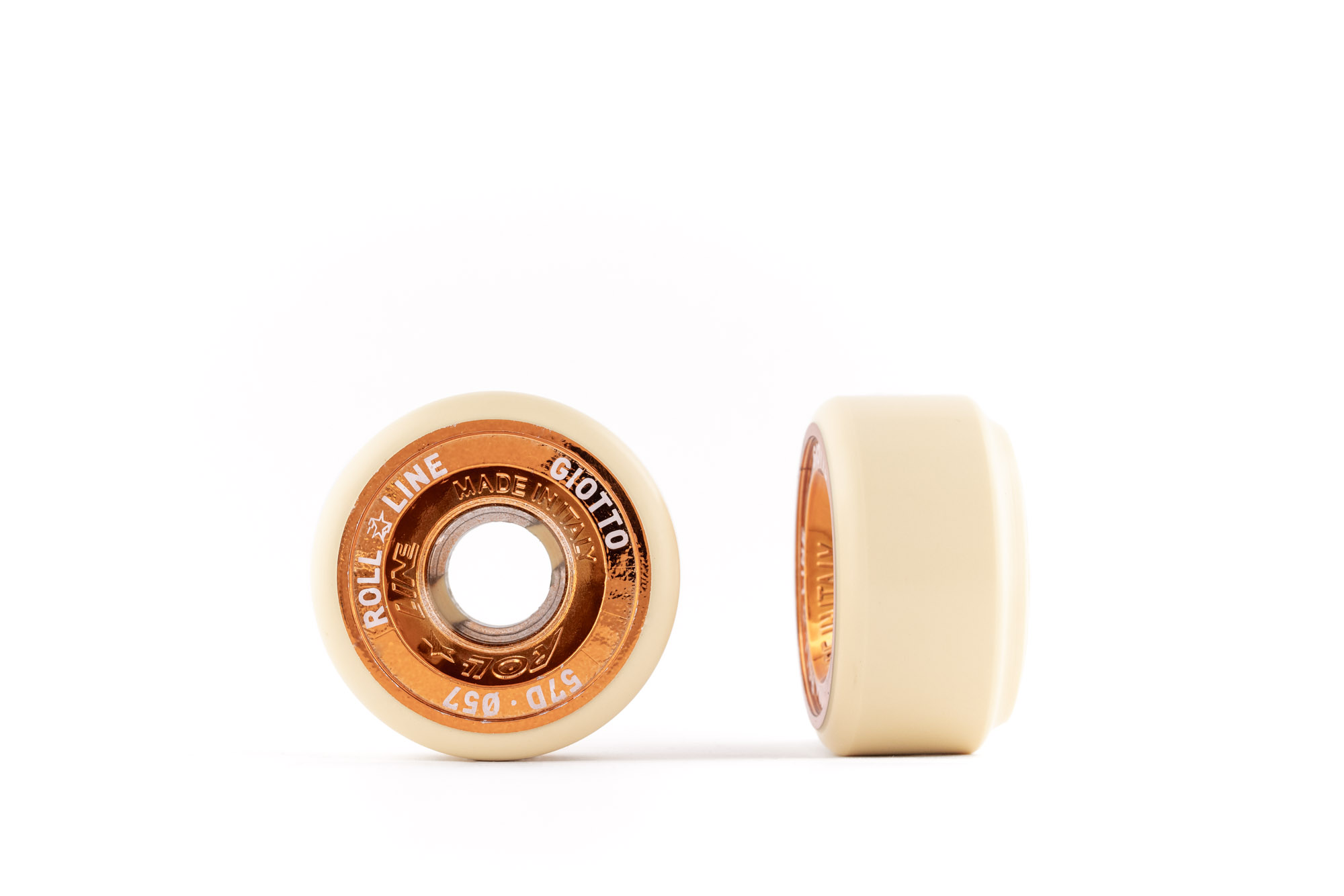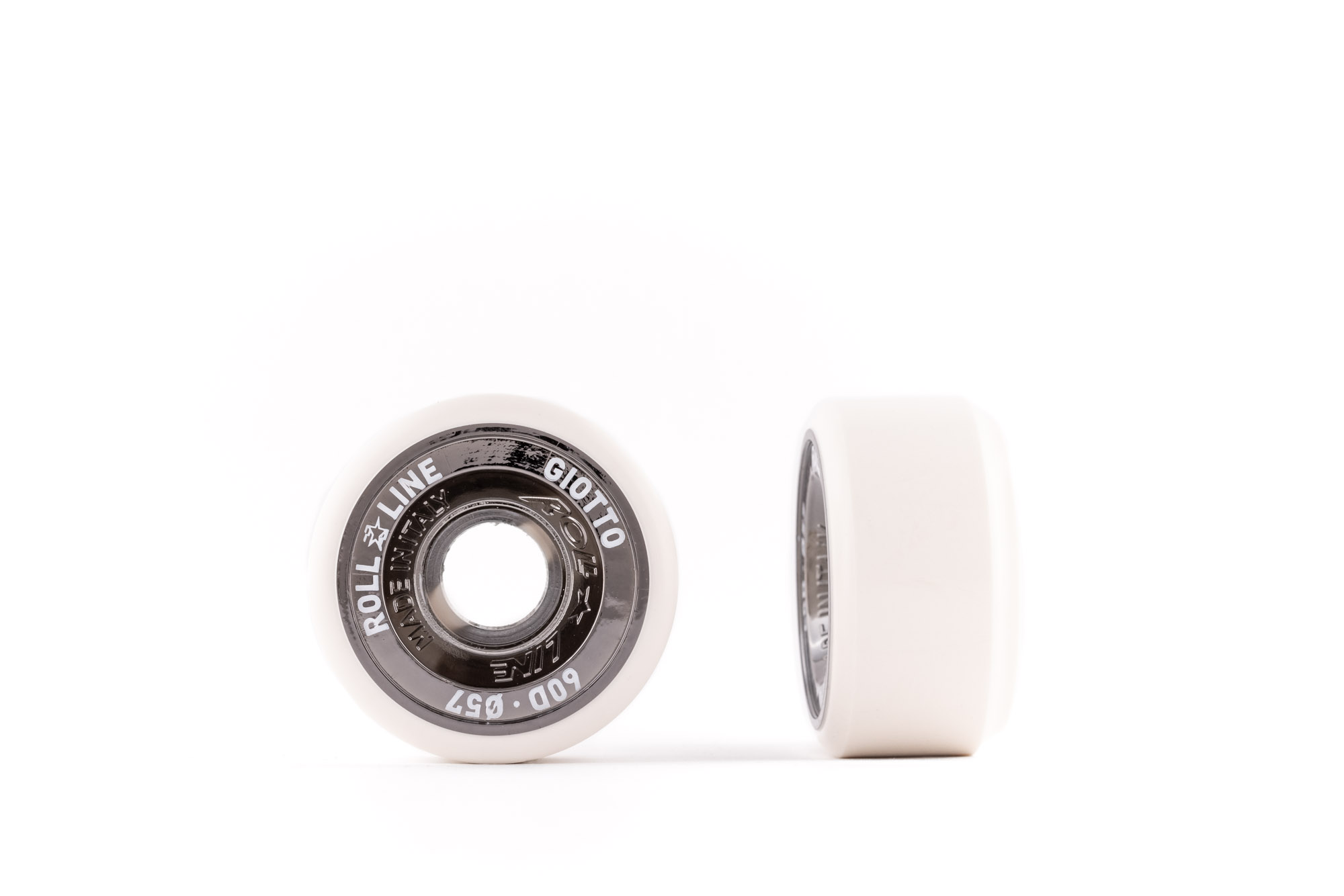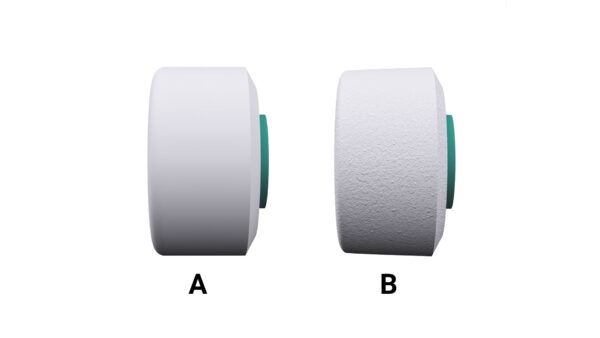Giotto
The Giotto wheels are designed for competition-level roller skating, and are the most popular Roll-Line© wheels.
- Monocoque wheels produced via injection of a mix of thermoplastic polymer materials.
- Provide an optimal compromise between grip and roll, thanks to their tapered profile.
- The rounded finish allows for use in competitions with a minimal adjustment time.
- Brilliant and elegant chrome coverage.
- Available in five hardnesses (colors) and two diameters: 57mm and 55mm
- Available in sets of 8 wheels (It is at the discretion of each reseller to sell units in smaller quantities).
Roll-Line does not sell directly to the public; to complete your purchase, please refer to an official reseller.

